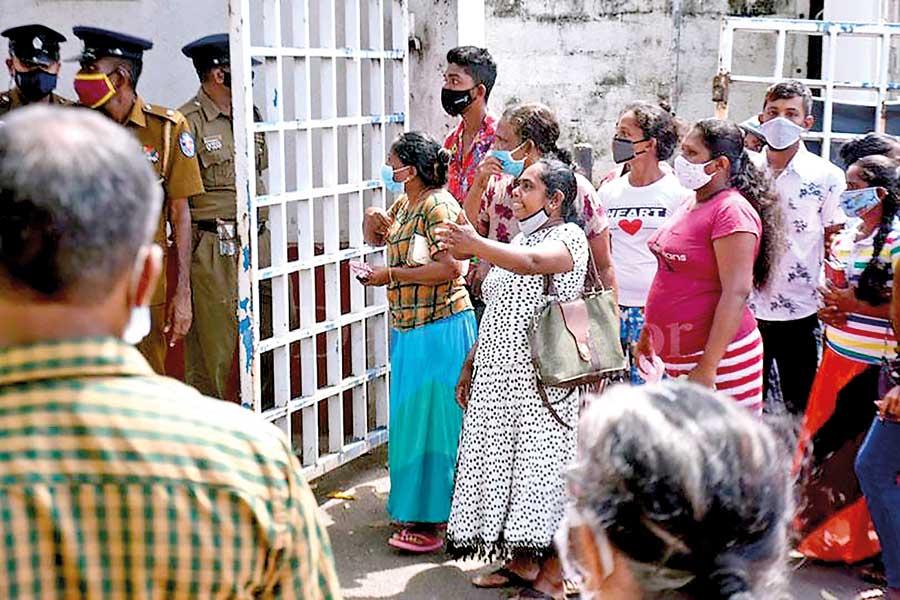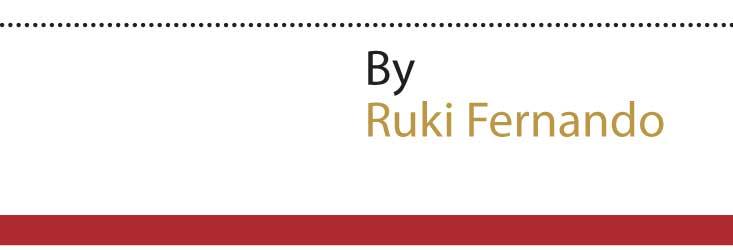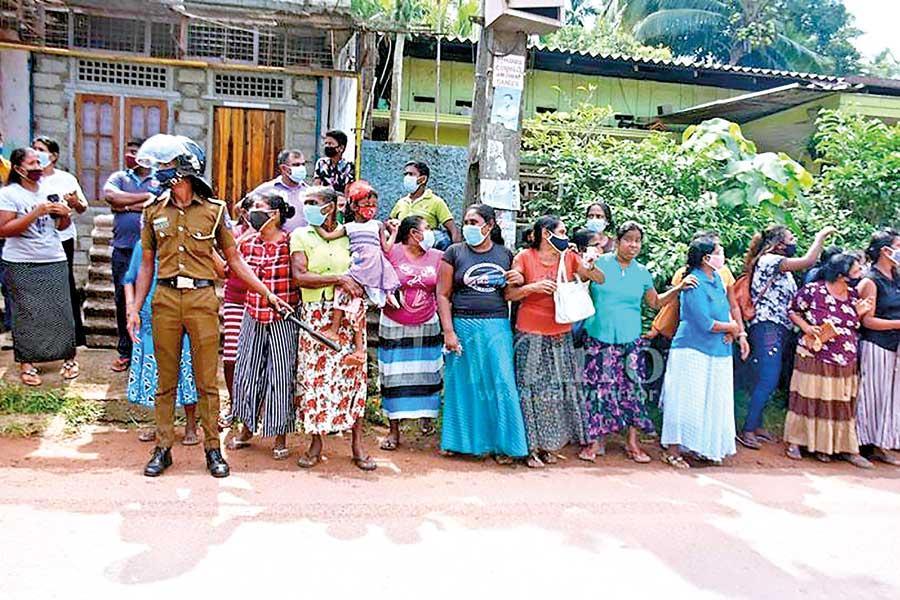07 Dec 2020 - {{hitsCtrl.values.hits}}

Grieving family members of inmates outside Mahara Prison
“Where is my son, where is my brother?” was the constant refrain of about 50 people gathered outside the Mahara prison on December 5, six days after the prison massacre that left 11 dead and more than 100  injured.
injured.
Most of those who were there were mothers of inmates. There were also other family members. One woman had visited her son on October 3 and received calls from him in November after the visits were curtailed in October. Several others had visited and received phone calls before the killings inside the prison on November 29. One mother said that her son had been given bail before the violence but had not been released.
"Families showed earlier notices pasted on the same building that listed names of 93 people, with prison numbers. But these lists had no signatory"
All those waiting outside the prison wanted to know the fate of their loved ones who were inmates. Some said they just wanted to see the face even from a distance, others said they wanted to speak to their family member on the phone and some demanded a list of people still in the prison, sent for quarantine or hospitalised. One distraught mother showed two photos that resembled the same person – one showed her son at home and the other a bleeding and injured person, which she felt looked like her son. What families seek is an end to the uncertainty regarding the fate and well-being of those in the prison at the time the killings took place.
"The prison authorities had also asked family members to write their names, phone numbers and details of their relatives with the promise that they would facilitate a call from the inmate to the family"
While I was outside the prison entrance uniformed prison officials pasted two notices on the wooden door of a nearby building. One notice asked families of inmates who had not heard from their loved ones to call a particular number. The other notice said some inmates who had received bail had been taken to an Army protection centre in Akkaraipattu to be released after quarantine and to call another number to receive more information. Both notices were signed by the Superintendent of the Mahara Prison.
"In each instance, families are seeking the most basic information. What has happened to my loved one who was in your care and custody?"
Families showed earlier notices pasted on the same building that listed names of 93 people, with prison numbers. But these lists had no signatory. A guard at the main gate to the prison said that this list was of those who had been injured, some of whom were still in hospital and others who had been brought back to the Mahara prison after treatment at the hospital. The guard was politely and patiently answering questions of anxious family members but beyond explaining procedures, he had no real answers.
The prison authorities had also asked family members to write their names, phone numbers and details of their relatives with the promise that they would facilitate a call from the inmate to the family. Some family members started writing details but others angrily dismissed the book as a farce. They said they had been at the prison entrance for several days and written in the book before but had not received any calls.
One mother said she had been there from 5 am to 6 pm every day for six days but had not received any information about her son. Her husband had passed away when her son and daughter were young and she described how hard it was for her to bring up two children working at various houses. She had no income this week due to being outside the prison every day and explained how difficult it was to come daily to the prison entrance from far away, spending money for several buses.
When a prison department bus emerged from within the prison and roared past the families, there was more agitation. Some demanded to see the faces and speak to that inside, suspecting that their family members were being taken to an unknown location.
"According to Sri Lankan law, any person acting in an official capacity who detains or deprives the liberty of another person and refuses to acknowledge conceals the fate, fails to disclose or is unable to disclose the subsequent or present whereabouts of the detained person without a valid excuse shall be guilty of the offence of enforced disappearance"
There was also speculation that those inside the bus were prison officials. Several angry and desperate families decided to block any other bus that came out but it was too late, the bus had passed and no other bus came out in the next hour or so.
The desperate appeals of the families of Mahara inmates made me recall the pleas of families of enforced disappearances across Sri Lanka including the Tamil families who had been at roadside protests for years asking to know the fate of their loved ones.
In each instance, families are seeking the most basic information.
What has happened to my loved one who was in your care and custody? Are they safe and cared for, and if harm has been done to them, who is responsible? Who do we turn to for answers?
According to Sri Lankan law, any person acting in an official capacity who detains or deprives the liberty of another person and refuses to acknowledge conceals the fate, fails to disclose or is unable to disclose the subsequent or present whereabouts of the detained person without a valid excuse shall be guilty of the offence of enforced disappearance.
"It is a crime punishable by a sentence of up to 20 years while being liable to pay a fine up to one million rupees and compensation that’s not less than five thousand rupees. Is this not applicable to officials who have deprived the liberty of the Mahara prison inmates and are refusing to inform the families of their whereabouts?"
It is a crime punishable by a sentence of up to 20 years while being liable to pay a fine up to one million rupees and compensation that’s not less than five thousand rupees.
Is this not applicable to officials who have deprived the liberty of the Mahara prison inmates and are refusing to inform the families of their whereabouts?
Six days after the massacre, it is time for the authorities to allow families of inmates who survived to see their loved ones from a distance or at least facilitate one phone call.

30 Nov 2024 58 minute ago
30 Nov 2024 3 hours ago
30 Nov 2024 6 hours ago
30 Nov 2024 7 hours ago
29 Nov 2024 29 Nov 2024